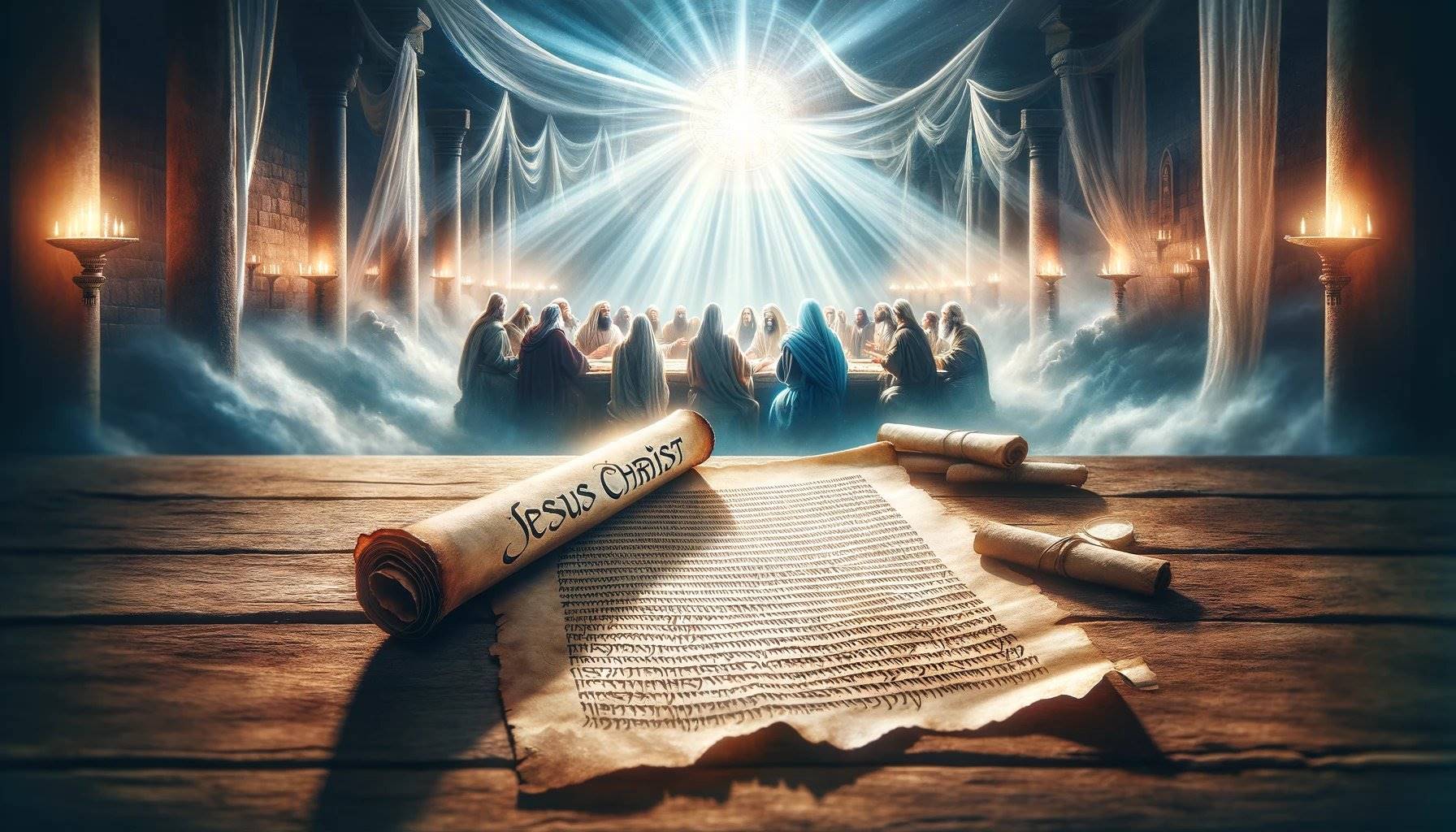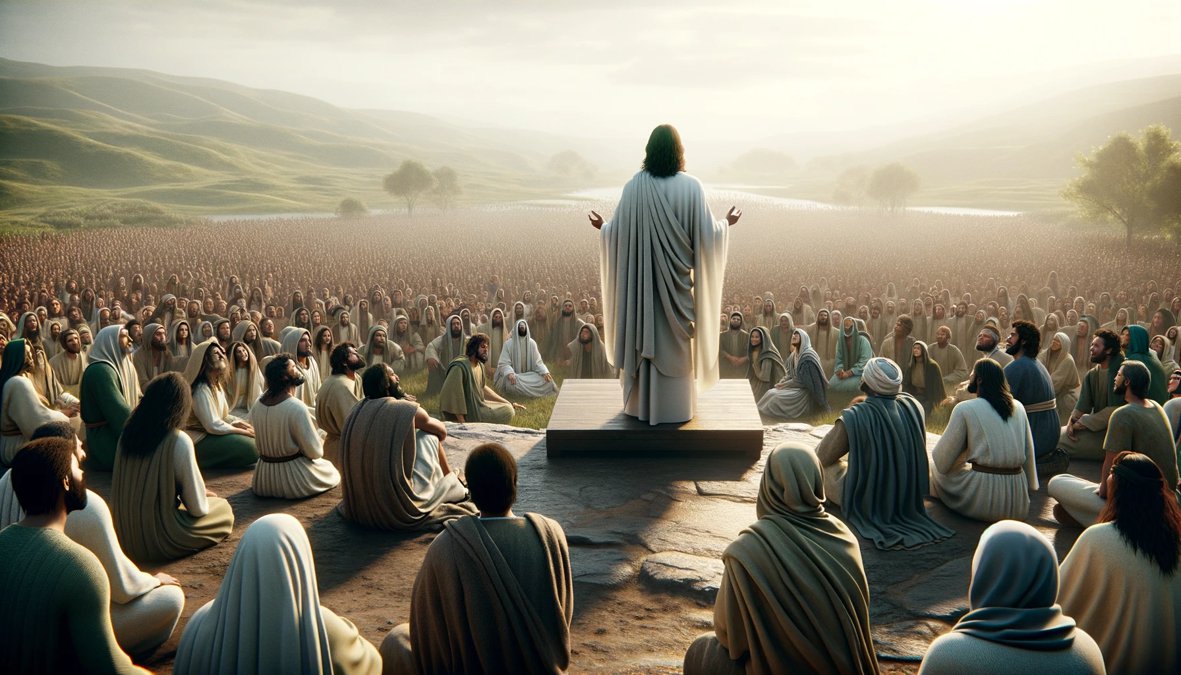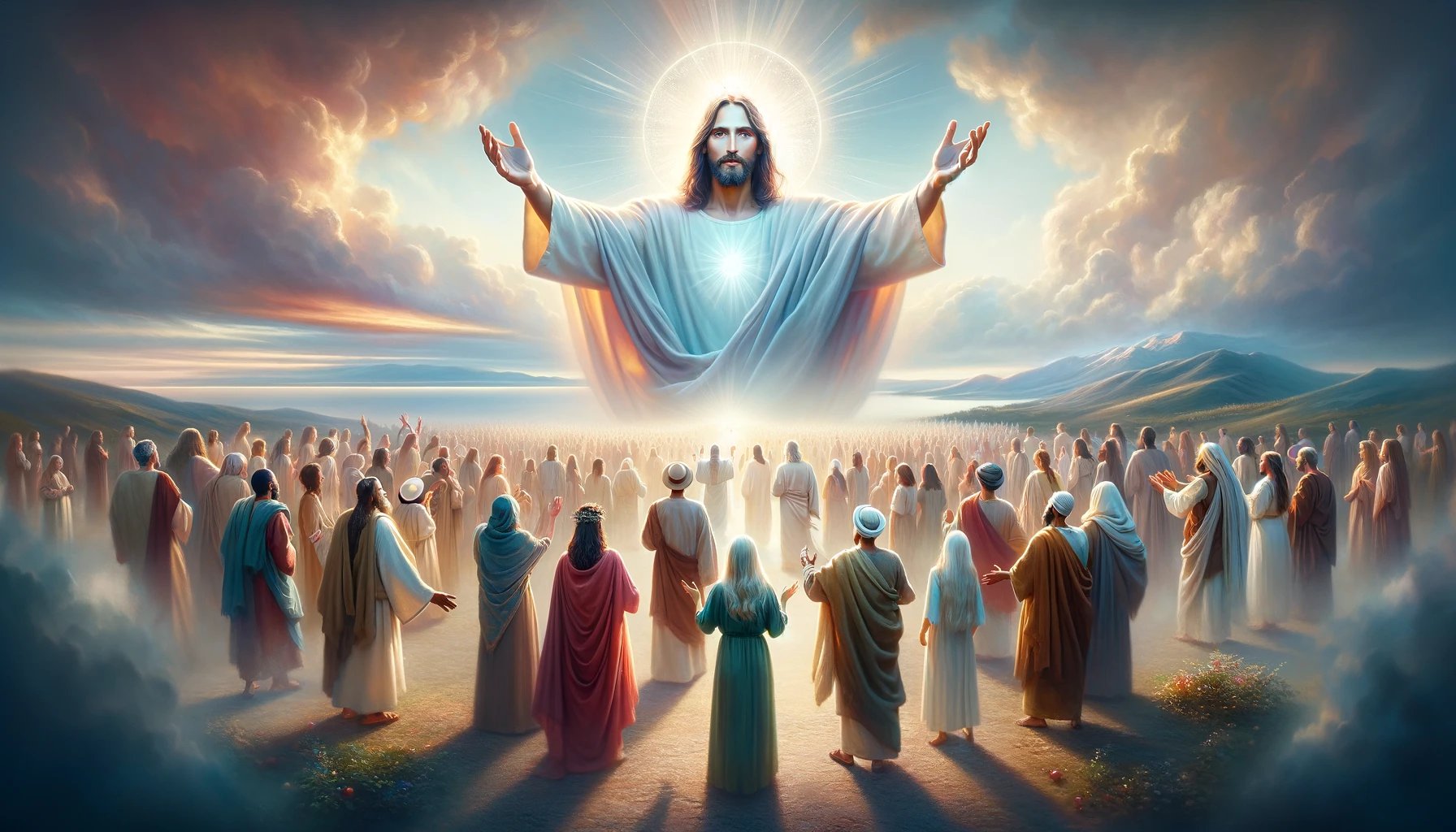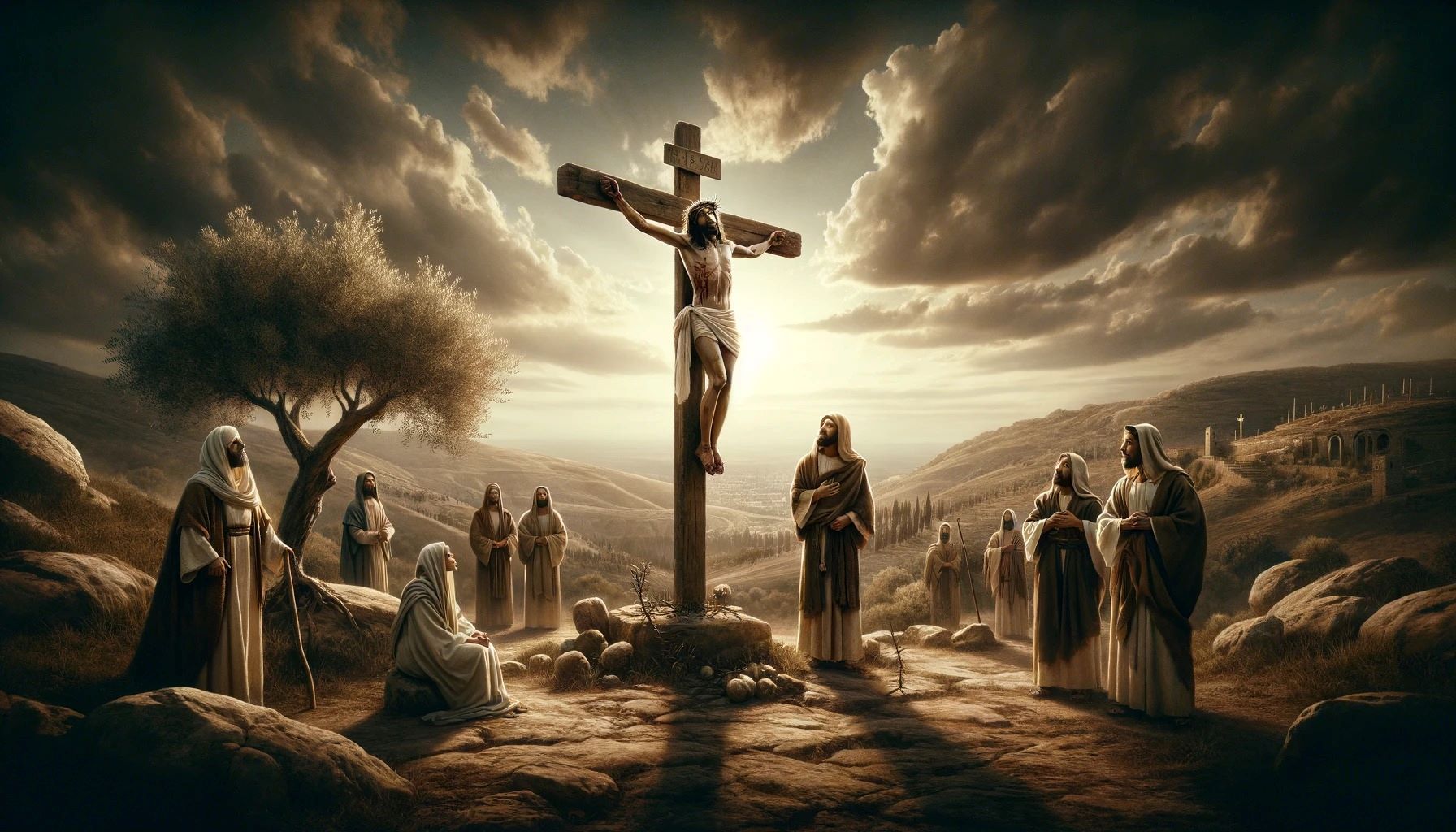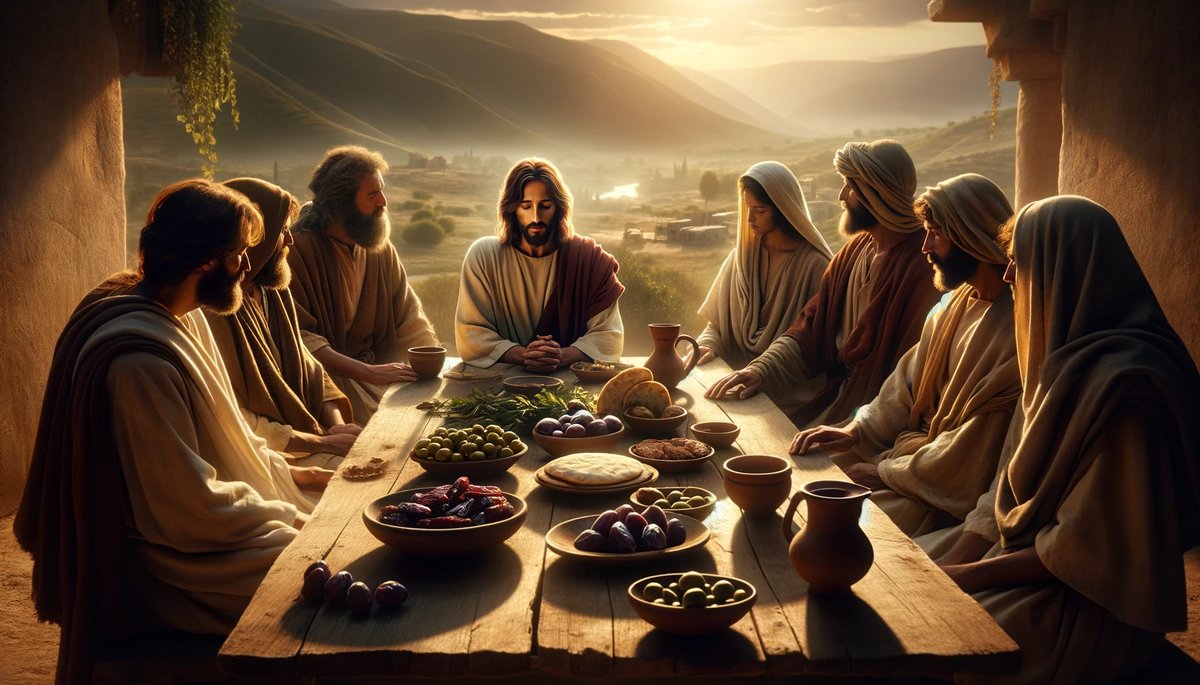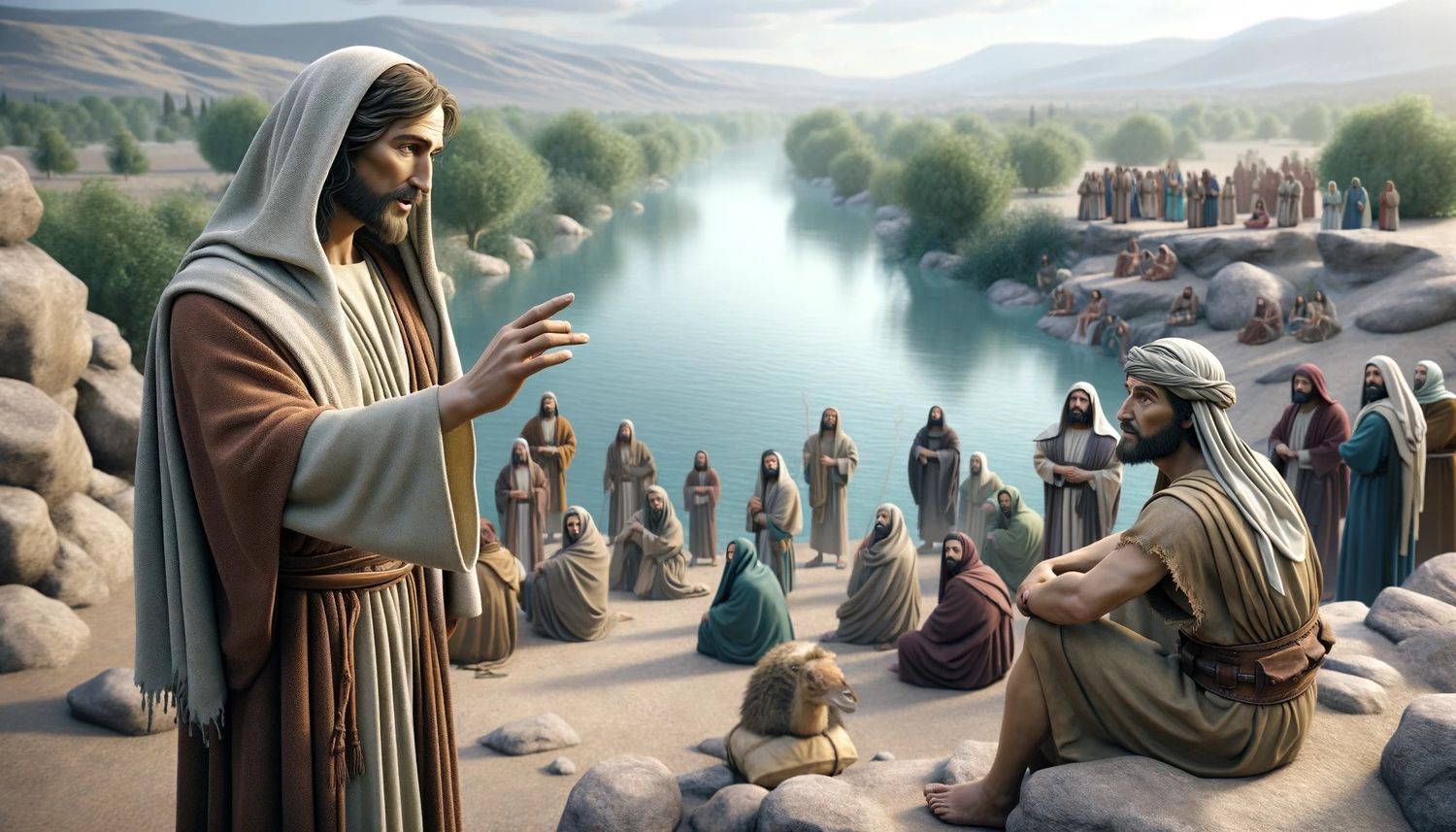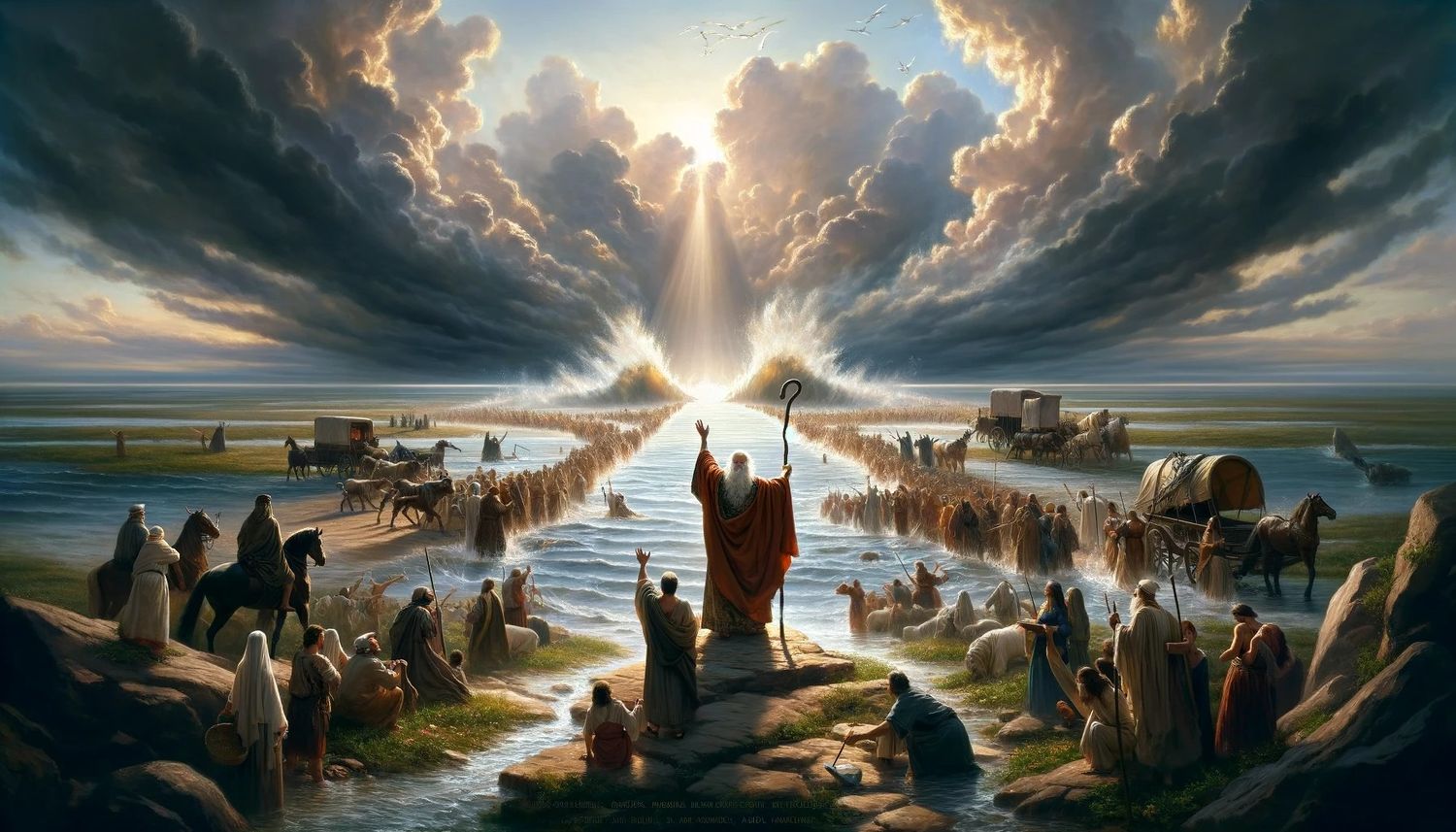Home>Christian Videos>Bible Stories>What Did Jesus Christ Think About Moses
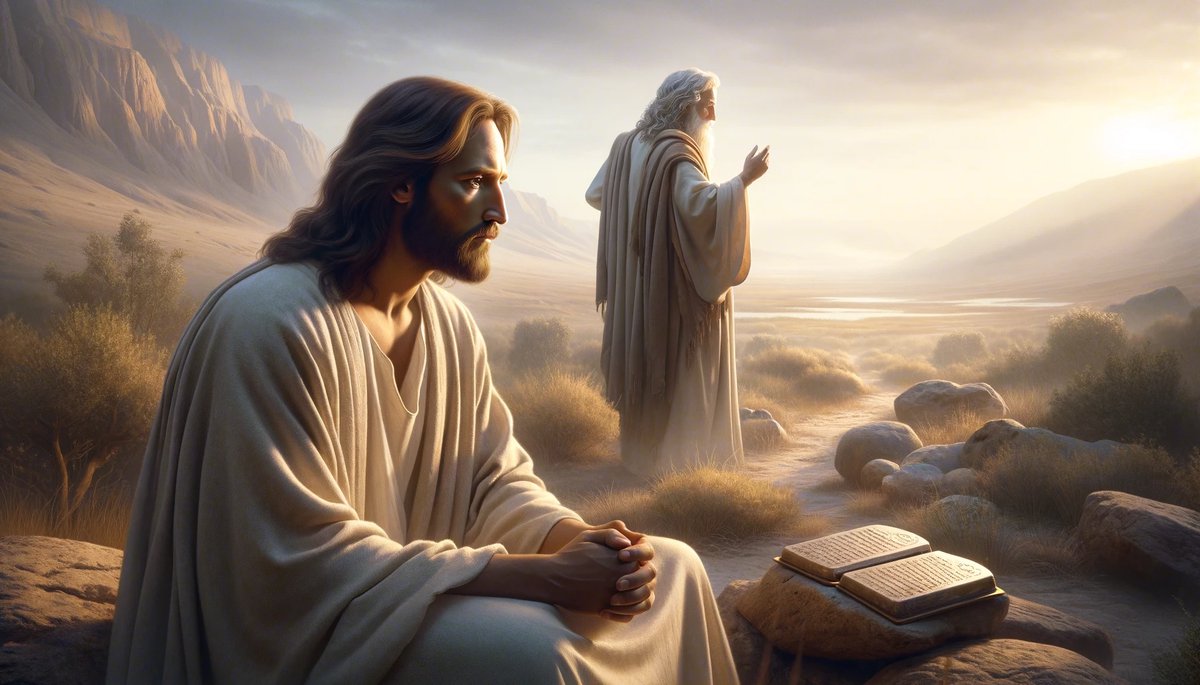

Bible Stories
What Did Jesus Christ Think About Moses
Published: February 29, 2024
Ericka Andersen, an editor at Christian.net, expertly merges digital strategy with content creation, focusing on faith and societal issues. Her communication skills enhance the platform's engaging narratives, fostering meaningful dialogue on belief's impact on society.
Discover what Jesus Christ thought about Moses and explore more Bible stories. Gain insights into the teachings of Jesus and the significance of Moses in the Bible. Unlock the wisdom of the scriptures today.
(Many of the links in this article redirect to a specific reviewed product. Your purchase of these products through affiliate links helps to generate commission for Christian.net, at no extra cost. Learn more)
Table of Contents
Introduction
What did Jesus Christ think about Moses? This question delves into the relationship between two central figures in the Abrahamic religious traditions. Moses, revered as a prophet and leader in Judaism, Christianity, and Islam, played a pivotal role in delivering the Ten Commandments and guiding the Israelites. Understanding Jesus Christ's perspective on Moses provides insight into the continuity and evolution of religious thought and practice. In exploring this topic, we can uncover the connections between the Old and New Testaments and gain a deeper understanding of the foundations of Christianity.
Read more: What Did Muhammad Say About Jesus Christ
The Role of Moses in Jewish Tradition
-
Prophet and Leader: In Jewish tradition, Moses is revered as a prophet and leader who played a pivotal role in the liberation of the Israelites from slavery in Egypt. His leadership extended to guiding the Israelites through their journey in the wilderness and delivering the divine laws and commandments.
-
Lawgiver: Moses is also recognized as the lawgiver who received the Ten Commandments directly from God on Mount Sinai. These commandments form the foundation of ethical and moral conduct in Judaism, emphasizing principles such as monotheism, honoring parents, and prohibiting murder, theft, and adultery.
-
Intermediary with God: Moses served as an intermediary between the Israelites and God, conveying divine messages and instructions. His close relationship with God is a central aspect of his significance in Jewish tradition, symbolizing the covenant between the Israelites and the divine.
-
Symbol of Faith and Obedience: Moses' unwavering faith, obedience to God, and commitment to leading his people to the Promised Land exemplify key virtues in Jewish tradition. His steadfastness in the face of challenges and his dedication to fulfilling God's will make him a revered figure in Jewish religious and cultural consciousness.
-
Historical and Spiritual Legacy: Beyond his historical role, Moses embodies spiritual and moral teachings in Jewish tradition. His life and teachings continue to inspire Jewish individuals and communities, serving as a source of guidance and inspiration in navigating the complexities of life and faith.
Jesus Christ's References to Moses in the New Testament
-
Teachings and Parallels: Throughout the New Testament, Jesus Christ makes several references to Moses, drawing upon the legacy and teachings associated with the revered figure. In the Gospel of Matthew, Jesus delivers the Sermon on the Mount, echoing the style of Moses delivering the law on Mount Sinai. This parallel serves to emphasize the continuity and fulfillment of divine teachings through Jesus, while also honoring the foundational role of Moses in delivering the commandments.
-
Transfiguration: Another significant reference to Moses occurs during the Transfiguration, as described in the Gospels of Matthew, Mark, and Luke. During this event, Jesus is transfigured before his disciples, and Moses, along with Elijah, appears and converses with him. This encounter symbolizes the continuity between the prophetic traditions of Moses and Elijah and the fulfillment of their teachings in the person of Jesus Christ.
-
The Law and Prophets: Jesus explicitly addresses the significance of Moses in relation to the law and the prophets. In the Gospel of John, Jesus states, "Do not think that I will accuse you before the Father. Your accuser is Moses, on whom your hopes are set. If you believed Moses, you would believe me, for he wrote about me" (John 5:45-46). Here, Jesus emphasizes the interconnectedness of his mission with the teachings and prophecies of Moses, highlighting the continuity between the Old Testament and the fulfillment of its promises in the New Testament.
-
Authority and Interpretation: In various encounters with religious leaders and followers, Jesus engages in discussions about the authority and interpretation of the Mosaic law. He challenges traditional interpretations and practices, offering new insights and emphasizing the underlying principles of love, justice, and mercy. Through these interactions, Jesus demonstrates a deep understanding of the teachings of Moses while also bringing a transformative perspective to the application of divine principles.
-
Symbolic Significance: Jesus' references to Moses serve to affirm the foundational role of Moses in Jewish tradition while also signaling the transformative nature of his own mission. By acknowledging the authority and teachings of Moses, Jesus establishes a bridge between the Old and New Covenants, emphasizing the continuity of divine revelation while bringing about a new era of spiritual understanding and redemption.
-
**Overall, Jesus Christ's references to Moses in the New Testament underscore the interconnectedness of their missions and teachings, highlighting the continuity, fulfillment, and transformative nature of divine revelation through the person of Jesus Christ. These references serve to affirm the significance of Moses in the religious consciousness while also illuminating the central role of Jesus in shaping the understanding and practice of faith.
Jesus Christ's Views on the Law of Moses
-
Fulfillment and Interpretation: Jesus Christ's views on the Law of Moses reflect a nuanced approach that emphasizes both fulfillment and reinterpretation. In the Gospel of Matthew, Jesus declares, "Do not think that I have come to abolish the Law or the Prophets; I have not come to abolish them but to fulfill them" (Matthew 5:17). This statement encapsulates Jesus' stance on the Mosaic law, highlighting his role in fulfilling its ultimate purpose while offering a deeper interpretation that transcends legalistic observance.
-
Spiritual Essence over Legalistic Observance: Throughout his teachings, Jesus emphasizes the spiritual essence of the Mosaic law over rigid adherence to its legalistic aspects. In the same passage in Matthew, Jesus elaborates on various aspects of the law, contrasting traditional interpretations with a deeper moral and spiritual understanding. For instance, he addresses the commandment against murder, extending it to encompass anger and reconciliation, thereby emphasizing the underlying principles of love and forgiveness.
-
Emphasis on Love and Compassion: Jesus' views on the Law of Moses prioritize love, compassion, and mercy as foundational principles that transcend strict adherence to legal codes. In the Gospel of Mark, Jesus responds to a question about the greatest commandment by emphasizing love for God and love for one's neighbor as the core principles that encompass the entire law and prophets. This emphasis on love as the guiding force behind the law reflects Jesus' transformative interpretation of Mosaic teachings.
-
Challenging Legalistic Practices: Jesus challenges the prevailing legalistic practices and interpretations of the Mosaic law, advocating for a deeper understanding rooted in compassion and justice. In various encounters with religious leaders, he critiques their rigid adherence to legal formalities, advocating for a more profound commitment to justice, mercy, and faith. This approach reflects Jesus' desire to redirect the focus from external observance to internal transformation and genuine righteousness.
-
New Covenant and Redemption: Jesus' views on the Law of Moses are intrinsically linked to the establishment of a new covenant and the redemptive purpose of his mission. Through his teachings and actions, Jesus presents himself as the fulfillment of the law and the embodiment of divine grace and truth. His reinterpretation of the Mosaic law aligns with the transformative nature of the new covenant, emphasizing the restoration of humanity's relationship with God through faith and grace.
-
**Overall, Jesus Christ's views on the Law of Moses demonstrate a profound reinterpretation that transcends legalistic observance, emphasizing the spiritual essence, love, and compassion as the guiding principles. His teachings reflect a transformative understanding of the Mosaic law, aligning with the establishment of a new covenant centered on redemption and grace. This perspective underscores the continuity of divine revelation while ushering in a new era of spiritual understanding and fulfillment.
The Legacy of Moses in Christianity
-
Foundational Influence: In Christianity, the legacy of Moses holds profound significance as a foundational influence on the development of religious thought and practice. The teachings and experiences associated with Moses, particularly his role as the lawgiver and prophet, serve as a cornerstone for understanding the moral and ethical framework within Christian theology. The Old Testament narratives of Moses' leadership, the Exodus, and the reception of the Ten Commandments provide a historical and spiritual foundation that shapes Christian understanding of divine revelation and moral conduct.
-
Foreshadowing of Christ: Within Christian theology, the legacy of Moses is often viewed as a foreshadowing of the redemptive mission of Jesus Christ. The parallels between Moses and Jesus, such as their roles as deliverers and mediators of divine truth, contribute to the understanding of Moses as a precursor to the ultimate fulfillment of God's plan through the person of Jesus. This perspective underscores the continuity of divine revelation and the interconnectedness of the Old and New Testaments within Christian faith.
-
Legal and Prophetic Traditions: Moses' legacy encompasses both the legal and prophetic traditions that are integral to Christian understanding of God's will and purpose. The Mosaic law, as articulated in the Torah, provides a framework for moral and ethical guidance that informs Christian ethical principles and understanding of sin and righteousness. Additionally, Moses' prophetic role in conveying God's messages and guiding the Israelites serves as a testament to the continuity of prophetic tradition within Christian belief, culminating in the ultimate prophetic fulfillment found in Jesus Christ.
-
Symbol of Faith and Obedience: Within Christian teachings, Moses remains a symbol of faith, obedience, and steadfast commitment to God's will. His unwavering dedication to leading the Israelites, his intercession on behalf of the people, and his role as a conduit for divine revelation exemplify virtues that resonate within Christian discipleship. The legacy of Moses serves as a source of inspiration for believers, emphasizing the importance of faithfulness, perseverance, and trust in God's guidance.
-
Spiritual and Moral Exemplar: Moses' legacy in Christianity extends beyond historical narratives, embodying spiritual and moral exemplars that resonate with Christian believers. His encounters with God, his leadership in challenging circumstances, and his commitment to upholding divine principles serve as timeless lessons that inform Christian understanding of faith, leadership, and ethical conduct. The enduring legacy of Moses continues to inspire Christian individuals and communities, offering guidance and insight into the complexities of living out one's faith.
-
Continuity and Transformation: The legacy of Moses in Christianity reflects the interplay between continuity and transformation within the unfolding narrative of God's redemptive plan. While Moses represents the continuity of God's covenant and moral teachings, his legacy also anticipates the transformative fulfillment found in Jesus Christ. This dynamic interplay underscores the interconnectedness of the Old and New Covenants, emphasizing the enduring relevance of Moses' legacy while pointing towards the ultimate fulfillment and transformation through the life, death, and resurrection of Jesus.
Overall, the legacy of Moses in Christianity encompasses a multifaceted influence that shapes theological, ethical, and spiritual dimensions of Christian faith. Moses' role as a lawgiver, prophet, and exemplar of faith provides a rich tapestry of foundational principles and enduring lessons that continue to inform Christian belief and practice.

